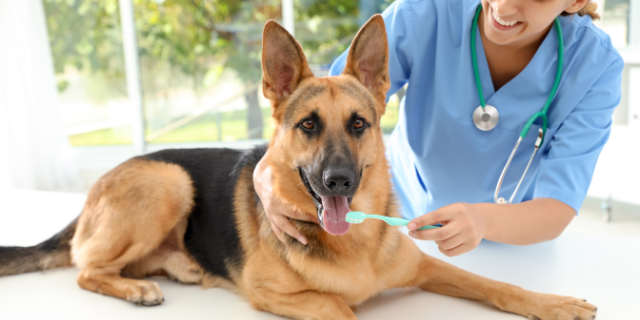A few dental-related myths are still floating around, which can mislead owners about the best dental care for their beloved pets.
Here are some of the top veterinary “tooth untruths” that our team would love to myth-bust.
1. Home dental care will prevent your pet from requiring veterinary dental treatment
We recommend early, regular home dental hygiene maintenance for every dog and cat to help slow the development of dental disease. Depending on the pet’s temperament, this may include daily tooth brushing, prescription dental diets, or daily dental chews.
However, even humans brushing their teeth twice daily are recommended to have a professional dental check (and a clean, if required) every 6-12 months to prevent painful periodontal disease (which causes permanent damage). It’s the same for pets; they will also benefit from a dental procedure every 6 to 12 months.
2. My pet is too old/unwell to undergo a dental procedure
Many owners are worried that a dental procedure will be too unsafe for their elderly pet. Rest assured that with the proper health screening (such as pre-anaesthetic blood tests), most older pets can still safely undergo an anaesthetic for dental work that will help to maintain their comfort and health.
In pets with pre-existing health issues, we can make additional safety adjustments, such as:
- Staging their dental treatment into two shorter procedures
- Avoiding the use of certain sedatives or drugs
- Considering specialist referral if appropriate
3. My pet is still eating, so they mustn’t be in pain
Unfortunately, many well-meaning owners have the wrong impression that their pet must not have dental pain if they are still eating!
Due to their natural survival instincts, most dogs and cats will continue eating through dental pain unless their disease becomes very severe (such as a tooth root abscess). If you’ve ever had tooth pain, you’ll know that it’s obviously preferable to treat pets before they reach this point.
For any other dental-related queries, consult our knowledgeable team.

